Search
Did you mean: Pergamon?
Remove Ads
Advertisement
Summary 
Loading AI-generated summary based on World History Encyclopedia articles ...
Search Results
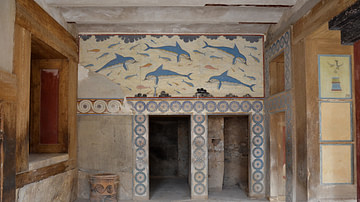
Image
Queen's Megaron of the Palace of Knossos
The largely restored Queen's Megaron of the Palace of Knossos, Crete. The room was adorned with frescoes which today are preserved as copies in their original position. The most striking is the fresco of the Dolphins which decorated the upper...
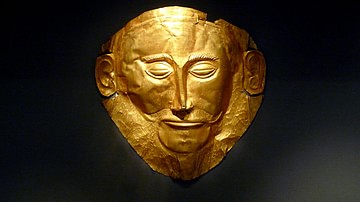
Definition
Mycenaean Civilization
The Mycenaean civilization flourished in the Late Bronze Age (c. 1700-1100 BCE), peaking from the 15th to the 13th century BCE. The Mycenaeans extended their influence throughout the Peloponnese in Greece and across the Aegean from Crete...
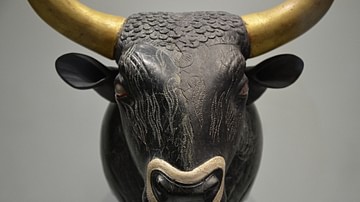
Article
Exploring Western Crete's Archaeological Treasures
As the cradle of European civilization and a meeting place of diverse cultures, Crete is a magical island that stands apart in the heart of the Mediterranean sea. Its prominent place in world history dates back to the mysterious and fascinating...

Definition
Greek Dark Age
The Greek Dark Age (c. 1200 to c. 800 BCE, overlapping with the Iron Age, c. 1200-550 BCE) is the modern-day term for the period in Greek history following the Bronze Age Collapse when the Mycenaean Civilization fell and the Linear B writing...
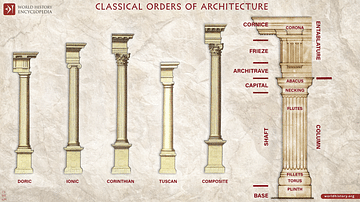
Definition
Column
The column was an architectural invention that allowed for the support of ceilings without the use of solid walls. Columns increase the space which can be spanned by a ceiling, allowing the entrance of more light. Columns also offer an alternative...
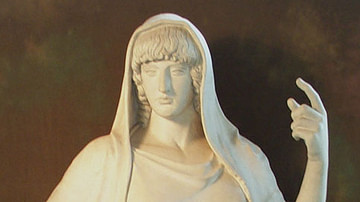
Definition
Hestia
Hestia was the Greek virgin goddess of the hearth, home, and hospitality. In Greek mythology, she is the eldest daughter of Cronus and Rhea. In her role as a protector of the family and political community, sacrifices and offerings were regularly...

Definition
Philistines
The Philistines populated the coastal regions of Canaan from the 12th century BCE to their disappearance in 604 BCE. The word "Philistine" derives from the Hebrew ha-Plištim for the combination of several tribes of Syria and Judea with the...
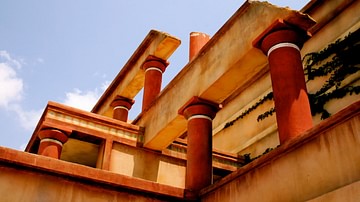
Definition
Bronze Age Aegean
The Bronze Age (c. 3000-1000 BCE) is the period when cultures were either using, producing, or trading bronze. Several cultures flourished around the Aegean Sea during this period: the Minoan civilization on Crete, the Mycenaean civilization...
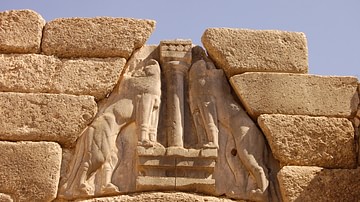
Definition
Mycenae
Mycenae was a fortified late Bronze Age city located between two hills on the Argolid plain of the Peloponnese, Greece. The acropolis today dates from between the 14th and 13th century BCE when the Mycenaean civilization was at its peak of...
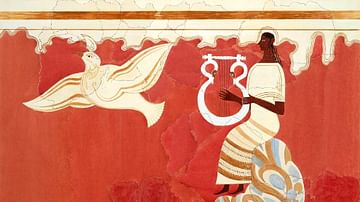
Definition
Pylos
Pylos was a significant Mycenaean Bronze Age city located in the region of Messenia, Greece. The site is situated on the hill of Ano Englianos and during its Late Bronze Age occupation between c. 1600-1200 BCE it covered a maximum area of...